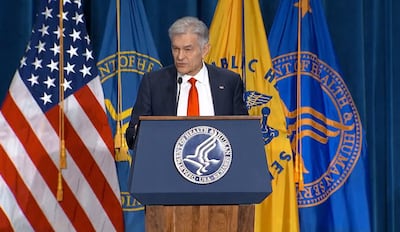Medicare
The sales opportunity in Medicare Part D and Medicaid arrives as Lilly and Novo Nordisk face a new competitive threat from compounded semaglutide for obesity.
The US Labor Department also added a proposed rule requiring PBMs to disclose additional compensation information to certain employer-plan sponsors.
The HHS OIG advisory pertains to manufacturer sales to patients. OIG will seek stakeholder input regarding possible additional guidance on manufacturer arrangements with pharmacies, pharmacy benefit managers, telemedicine vendors and marketers.
The process will pit breast cancer treatment competitors Kisqali and Verzenio against each other as CMS develops pricing offers.
Enactment of a law delinking PBM compensation from list prices would still be a long-sought victory for pharma.
Heavy hitters Keytruda and Opdivo got a pass in the third round of price negotiation because of the expanded orphan drug exemption in President Trump’s One Big Beautiful Bill.
BMS's Lenkowsky discussed the impact of the company's MFN deal in an interview at the J.P. Morgan Healthcare conference.
The plan does not include many details, but is intended to help Congress draft legislation ensuring Most Favored Nation drug pricing agreements can be made, as well as implement measures intended to lower insurance premiums.
The announced agreement means AbbVie and Regeneron are the only companies of the 17 notified by the White House in July yet to make a deal.
The agency is considering setting a payer participation ‘threshold’ to meet before the model goes into effect.
The impact predicted by the Centers for Medicare and Medicaid Services indicates the model would fall short of its expressed purpose.
GLOBE resurrects Trump’s 2020 effort to try aligning Medicare Part B prices with lower prices abroad, but key aspects of the model have evolved and are noteworthy even if the demonstration does not advance as planned.
The US Centers for Medicare and Medicaid Services argued gender affirming care is not health care to help justify the new proposed rules. The argument could create a new opening for the federal government to go after other pharmaceuticals.
The FDA’s policies on analgesic labeling appear to be limiting the potential for novel non-opioid pain medicines to qualify for separate payments in Medicare after CMS said the indication must be for post-operative use.
Manufacturers are responding to a convergence of factors, but plans will miss the rebate dollars they have relied on in the current pricing model.
An IQVIA analysis is the first published investigation of the financial impact of 340B rebates on covered entity-owned pharmacies and supports the manufacturers’ position that the rebate model is workable for providers.
CMS backs off on a plan to put “guardrails” around manufacturer payments that are excluded from Average Sales Price calculations in Medicare, but is planning to revisit the issue.
CMS may have decided some of the IPAY 2027 drugs did not measure up to their IPAY 2026 therapeutic alternatives, but negotiation parameters also may have played a role in the lower prices negotiated in the latest round compared to the first cycle.
The final guidance for the upcoming third round of the Medicare drug price negotiation process is most notable for the amount left unchanged.
Because they are not heavily rebated already, the discounts on four cancer treatments and a trio of other specialty drugs may benefit patients and the government more than others in the IPAY 2027 class.




















